Recently in Board game club Category

Last Sunday's board game club was an excellent opportunity to get some Age of Steam action. I had heard a tip that Winsome's cow expansion Age of Steam: Texas, Oklahoma & New Mexico is good, so that's what we tried. I enjoyed it.
The expansion has cattle. In the first round, 32 cattle cubes are spread around the map. On the northern and eastern edges of the map, there are cattle demand cities that accept cattle cubes. If you build track across a hex where a cattle cube resides, the cube is put on the track and you can move it as any other good.
The game also has two special actions related to cattle. Ranching allows you to place up to two cattle cubes on the board, while Cattle Drive lets you move a cattle cube step or two from open land to your tracks so you can ship it to the slaughterhouse.
There's an abundance of cubes (all cattle demand cities start with four cubes), so Production has very little value. It's an easy, relaxed map and works well with new players. We had five players and there was enough room for all of us, a nice amount of competition really. Our game took two hours, which was pretty good for the amount of newbies around the board. At least it was faster than the game of Pillars of the Earth on the next table...

I had a great time at today's board game club (yeah, the baby's still waiting for a nice day to be born -- perhaps next week?). I started with quick five-player game of Formissimo, which is a simple speed test pattern recognition puzzle.
Cards have images with different attributes. 30 cards are laid on the table and every player gets one. Then you just have to find a card with a picture that has at most one attribute different from the card you have. Continue finding new cards until you can't, then say stop. Everybody who hasn't made a mistake scores one point per card.
It's simple and really fast. A round can be over in seconds and a whole game is done in five minutes or so. With five players, it was perhaps too fast. The task is fairly simple, though it's also fairly easy to make mistakes. This won't replace Flix Mix or Set, but I'll play this again -- but preferably with just three or four players.
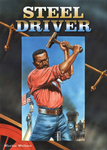
My Milan-Spiele order arrived last Friday after just two months of waiting. The delivery itself was very swift, as the parcel was posted on Monday. We just had to wait for Duck Dealer... Obviously worth the wait. That game seems interesting. I also got Formissimo and Steel Driver in that order, so it was time to get Steel Driver on the table again.
Last time I played Steel Driver was in Helcon. Again we had five players. The game is quite easy to teach, which is nice. We also played fast, finishing the game in just 60 minutes.
It was a good game, with players using interesting tactics. One of the players figured out that since he doesn't know much about the end game works except that it's huge, he tries to make as much money (points) during the game as possible. He pretty much always paid all his money to buy the share he wanted and then developed the railroads a lot.
In the end he was second to last, so it didn't quite work out, but I think there's some potential in that strategy. It's just that his shares weren't good enough in the end. I did well and bought a total of eight shares (the practical maximum in five-player games is ten). That included about four really good shares, which was enough to secure my victory.
I like Steel Driver. It's a refreshing change from Wabash & Co that you use a fixed income of cubes to bid and the shares produce different currency, that's what makes Steel Driver interesting and worth playing.
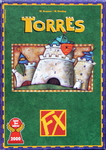
According to my stats, the last time I played Torres was in August 2002. Six and half years ago, that is. The game has lingered in my mind since and I often thought about buying it. I think somebody thought about publishing it in Finnish, which made me hopeful, but that didn't happen. Finally I got the game in a math trade, I traded Chinatown for it. I even got the old version, I prefer the Cimatoribus art of that version.
We had four players in our game, with fairly little experience. So, of course we had all the action cards available for everybody. That way nobody has to remember what the decks contain. To me, that seems like the best way to play the game anyway, though I could try the version where everybody has a personal deck and the cards are drawn -- now it seemed like people had few action points too much at times.
It was a fun game. I was slightly annoyed by the lack of interesting building options in the end -- why do anything less valuable when I could simply expand my main castle with two tower blocks for eight points? Everybody thought I would win, and I did have a great castle 11 blocks wide -- but I was on the fifth floor and Riku and Toni were on the fourth floor, so that was just 11 points for me. In the other hand, those guys got 51 and 42 points from the king's castle, while I got just 18 points -- a loss of 33 and 24 points for me.
That was enough, I didn't win but I did place second. In what I understand is typical for Torres, the final scores were 238, 236, 235 and 193 -- so the difference between 1st and 3rd is just over 1% of the total score. Can't feel too bad about a third place like that.
Hopefully I'll get to play Torres again before 2015...

Last Sunday I visited the board game club and instead of the quick visit last time, I was able to play games for few hours. We started with a quick round of Halli Galli Extreme for warm-up. It's a nice little game, quick and entertaining. Some won't like the extra difficulty from the animals, but I find it attractive.
Dominion was the next game in line. We ended up playing two games in a row, using two setups from the rulebook. The first one was the recommended beginner setup - fairly simple, basic cards with little interactivity or difficult stuff - and the second was the money setup (I don't know what it's called in English, because I have a Finnish copy).
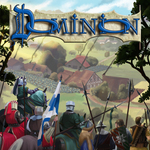
The two games were completely different. The first one took almost an hour and had lots of actions played every turn, while the second one only took about 30 minutes and saw plenty of money flowing around and many more scoring cards bought.
So, is it any good? Yeah! Brian Bankler thinks it's slightly dull (read his review of Dominion), but I found it charming. There's some luck of the draw, little long-term planning and no direct interaction between players - but it's fun to see your deck evolve, you can plan your next turn while the other players play and the game usually moves quickly.
It's fun, that is. Looks like I'll be trying to find some time to hit BSW - I've been away for a long time, but Dominion might be the game that brings me back. I want to play this game, now!

After that we continued with Container. I got this from a friend who totally hates the game. I suppose I can see why - it's not for everybody. I'm not sure if I like it!
It's a business game, with lots of buying and selling. Players have factories that produce goods, which the other players buy to their warehouses, where someone else can buy them to their ship. Ships take the goods to the island, where an auction is held for the goods. Complicated!
There's quite a few details in it. In the scoring what counts is the containers on your part of the island. The five different colours of containers have different values to different players, everybody loses their most common colour of containers and getting one of each colour doubles the value of one colour. Even more complicated!
In our game the economy was very tight, selling stuff was hard. Only the cheapest possible prices were accepted. So, the only way to make any money was to ship stuff. That paid well, especially as a government subsidy means that whatever the highest bidder pays, bank pays as well.
I made a huge mistake and ran out of money when I had maxed out on loans. The guys didn't buy anything from me for few turns, which meant the bank confiscated my containers to cover the loan interest. I recovered, eventually, but was completely out of competition for the rest of the game. The final scores were 130-118-52-29.
It's a tricky game and as I said, I'm not sure if I like it. I get the complaints about boring repetition and dryness. The economy is brutal and in our game probably a bit too tight to be interesting. We're probably playing the game next Thursday, as there's some interest for modern-day business games in our group and there aren't too many of those around.
After that game I'll be able to say something more definite about the long-term staying power of the game.

I visited board game club today for a while. I had to leave early, but I did have time for a round of New England Railways. We got five players and this time, since I was carrying Age of Steam as well, we replaced the cardboard chits with actual wooden cubes. It was much better.
This time the results were slightly different than in our last session. Tero won with $65, Olli had $19, I had $9, Outi had $4 in the red and Robert was $14 in the negative. So, no debt death spirals, but no really good results either. Even Tero had some debt left and he was the only one to pay any debt at all.
The shortness of the game - just half of the three-player game - is obviously one reason. We also had a nasty case of plenty of blue cubes in the main network and no access to blue cities. An earlier link to the blue cities on the edge of the board would've increased the incomes, I believe.
My own game was bad... I got a bad start and took many, many turns to get any income (I didn't buy a link on the first turn, then bought two useless unconnected links, way to go!). I was tight on the loans, so in the end that didn't hurt too much, but it was somewhat boring.
It was fun, or at least fun enough, but I don't think I'm playing the game again with five players any time soon. Someone might enjoy this - or even play with six players, but I prefer the three-player game with more turns and more time to enjoy your network. Four-player game might be the best, I'll have to try and see. But five's too much for me, that I know.
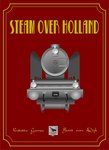
I've been too busy to write a session report from Finncon. Well, now I have time. I'll combine reports, as I just returned from our board game club, where I had a rather splendid little session. So, watch out for another blog entry of epic proportions... I played Steam over Holland in both sessions, so that'll get some extra attention.
Let's start with that. In Finncon we had five players: me, Olli, Robert, Ansi and Tombad. All were new. There was some fumbling with the rules, but generally Steam over Holland is pretty simple game - all of us were familiar with other 18xx titles. One of my biggest problems was to remember the 60 % holding limit - common rule in 18xx, but critically missing from my favourite, 1825.
That first game took about four hours. It was slow going a lot of the time... Olli for one is notoriously slow in 18xx (but not in other games), but the others took their time as well. Steam over Holland shouldn't be very long - after all, it's just five stock rounds and ten operating rounds, and that's it. The second game, with four players (me, Olli and two newbies), was just two hours 45 minutes, which was much better.
In both games one thing was clear: there isn't a lot of money going round. The first two or three stock rounds were pretty quiet, with not much trading going on. People simply didn't have money to buy shares. That meant that in the first game we played most of the game with five companies and in the second we used four railroads. Steam over Holland has an interesting rule where starting a railroad requires a purchase of N shares, where N is the phase number. That makes starting companies very expensive, so in the late game when you might have the money, it just isn't profitable anymore.
So, I'm a little wary about that: I would prefer more action with the shares. I kind of miss the question of when to dump the first company and to move on... In both our games starting a new railroad wasn't really an option. In the first one I decided that my railroad wouldn't do much, so I dumped it and invested elsewhere (and played as a pure investor or spectator the last four operating rounds, which was somewhat boring). In the second game, I just invested more in my own company.
Robert was very close to going bankrupt in the first game. Had I had 10 guldens more, I could've bought a train that would've finished Robert off. Instead he survived and went on to win the game with a heavy margin (2264, I was second with 1850). The second game was closer: one of the newbies won with 2106, I was second with 2088 and Olli third with 2024. The other newbie had 1661.
But it's a good game. I would like to see more stock round action and perhaps more companies in play. I do appreciate the shiny looks and the generally excellent production. This game is a pleasure to play. I need to experient with it a bit more, I suppose... perhaps trying to start more companies earlier or something like that, though I don't know where the money would come. I'll have to see... Fun game, and a good intro 18xx in my opinion, except the game is darn expensive (the downside of shiny components).
We also played West Riding in Finncon. West Riding is an auction game: a player chooses a railroad share to auction, and the winner of the auction gets the share and uses the money bid to draw some track on the map. More track means more dividends for the company. Individual company shares can be traded for grouping company shares, which gain value during the game and are very powerful in the end.
The problem with this game was the sheer amount of auctions combined with the difficulty of appraising the value of a company. It's very hard to say how much a company is worth, which makes the auctions rather hazy. Also, the Riding series system where there is at least one auction per player and then the auctions continue until someone runs out of money is slightly problematic - I'm not sure I like it here.
Our game was a bit strange anyway, as the lower grouping managed to cut quite a bit of the map for themselves, making those companies much better. It didn't really show in the prices, though, because all shares were terribly expensive anyway.
West Riding is a game for accountants: there's ton of book-keeping and calculation. The value of the railroads must be constantly re-calculated. Our game took, what, three hours or so, and I'm sure a proper computer version would cut most of that time. That's the only way to get me to try this game again... I think there might be a good game here somewhere, but it's drowning under calculation and confusing auctions. As it is, playing West Riding would be a waste of time I could use for better games. Nobody I played with will play the game again - I suppose that says something. These are not weaklings, either, but hard-core euro gamers.
So, in case somebody is interested, my game is up for sale. It's currently listed in Geek for 30 euros plus shipping, but I'm open to offers. It's such a small game that the shipping to US isn't much.
Then fast-forward to today. Our club had a nice turn-out, with four or five games going on most of the time. Plenty of Agricola - we had three copies available, funny enough. I started with some light fillers (Set which I totally dominated, Diamant which I didn't and some Crokinole, too).
We did play five rounds of Sheepshead, which is the American version of German Schafkopf. It's a nice little trick-taking game, best for five players (which is what we had). It's one of those fairly tricky games, an Ace-Ten game with funny trumps. Queens are the highest trumps, then jacks, then diamonds. Each player gets six cards from a 32-card deck and the two remaining cards are a widow.
One of the players is a declarer (first willing player starting from forehand) and the player holding jack of diamonds is the declarer's partner. They try to score 61 points. It's simple, if you're familiar with the type, but in our game few were. Outi in particular got a headache. It was fun, though, and I would definitely play Sheepshead again if I needed a five-player trick-taker where everybody plays.
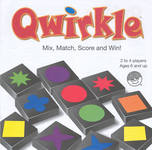
After Steam over Holland, I challenged Olli to a duel of Qwirkle. It was a close game, until Olli played some really nasty moves in the end ruining my game. Ok, so I did bump once or twice to my own nasty blocking moves, but that happens... It's a fun game, and I like playing it with just two players. We got an audience, too, which was fun - I suppose it would be nice to play in a tournament with people watching, that does give some extra boost to the game I guess.
One last game: I didn't have to ask Hannu twice to play some Le Truc. We played a proper three-game match, which I took home 2-1. The first game was a massacre, 12-2, I got good cards in just about every hand. Then I went and lost the second game 12-2 and finally won the last one 12-4. During the process we had some absolutely smashing hands, Hannu is a delightful opponent for Truc. This is a game I really, really recommend for two players looking for a fun game.
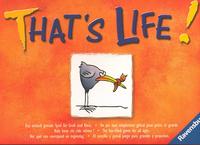
It's been a while since I last visited the board game club. Bad timing and busy weekends... It was a real pleasure to go and to celebrate, I decided to play something heavier that doesn't quite work with our Thursday evening sessions. First game of the afternoon was something lighter, though: we played Verflixxt! with six players, using best bits from both expansions (same as last time).
It was great fun and quick enough, so definitely worth playing again, perhaps with even more players. With seven or eight players, I think adding the tiles you'd normally take away might be a good idea. There aren't that many good games for six players or so, so having flexibility is good. Also, I don't think I can stress enough how important the expansions are for this game.

Then, the main event: Antiquity. After a two-year break it was certainly fun to get back to this classic. Last time I wrote "I do know something: San Christoforo's time is up. I'm not using that strategy again, I'm done with it. I'll have to come up with something else the next time I play." So, that's what I did (even though I had no memory of writing that, obviously).
I won the game, by the way. My first Antiquity victory ever, but this is one those games where beating three newbies doesn't really grant you any kind of bragging rights. However, I'm proud of my achievement: I managed to play the without any storage at all. None, whatsoever. And I only had to throw away few goods during the whole game, I was able to use most of the stuff I produced.
Of course I had a bit of a problem with feeding my folks, but as every Antiquity player knows, there are two ways to attack the problems of famine and pollution: prevention or cleanup. I simply chose cleanup. I first built a new city to house the graves, then hospital there, and finally a third city. If you accumulate six-seven graves each turn and have hospital and lots of space, no problems! Pollution was a bit of a problem, but strong expansion by lakes and alchemist in the third city and that's dealt with.
I have to praise the newbies, though. Tero played a very clean game, producing almost no pollution. He had his cathedral full of food and explored like crazy, driving the famine level up on purpose. That's just downright fiendish - but of course a brilliant strategy. Tero's choice of patron saint, Santa Maria, prevented him from winning, but I'd bet my money on him winning the game next time he plays.
It's a brilliant game, despite all the fiddling with the tiny counters. Our game took about three hours plus rules, not bad considering there were three newbies involved. The time went by swiftly, like it should.
Afterwards I relaxed a bit by playing two-player Race for the Galaxy with Robert and then a round of Set. Thursday's session left me hungry... This time I didn't make a single wrong call, winning the game. Great game, indeed.

It's been a while since my last visit to the board game club. Yesterday I was able to go, and had enough time, too, to play some heavier games. We started with Age of Steam: Mississippi Steamboats, one of Ted Alspach's expansions. It's a long and narrow board, split by the big river. Urbanization doesn't turn towns to cities, but adds new cities to the river as steamboats. Goods can be moved to the boats, from the boats and cross the river through the boats. On the banks, distances between cities are fairly long.
It's a strange expansion. It was fun, but the boats are quite random (they move 2d6 hexes each turn), so you can't really count on them - which was, sort of, the point of my strategy. I did a marvellous move on the last turn, though: I carried a blue cube from a city to the steamboat next to the city - but took the cube for a ride, passing it first south by the river, then across the river on a different steamboat, then up the river on the other bank and from there to the waiting steamboat, for six links. Pretty neat!
So, not a bad expansion, but not one of my favourites, either. Mississippi Steamboats doesn't make my "this one needs to be played again" list right now.
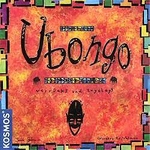
I played the big Ubongo - actually first time with the correct rules. Last time I played, we picked up the gems after the timer had run out, in a peaceful and ordered fashion. I prefer the more hectic version. The guys who I played with deserve some credit: they hadn't played before, but opted for the more difficult version straight away.
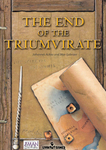
After some quick card games (Coloretto, good fun after a long break and Briscola, which was pretty good with just two), it was time for The End of the Triumvirate, which I bought from Tommy last Spring. Now I got it on the table!
It's a three-player semiwargame set in the ancient Rome, where Caesar, Pompeius and Crassus duke it out, fighting for the ultimate power in Rome. There are three paths to victory: military dominance, political power and gaining superior competence. The players move their character, leading legions and collecting money. Battles are simple affairs: one-for-one attrition battles with a small random element included to spice things up.
It's a clean, neat game and rather well done. It's just that I don't really like the genre... The whole concept of preventing other players from winning the game as the main purpose of the game just doesn't work for me. Here it's almost ok, as the game is forced to progress and end fairly soon (it can't just go on forever, which would make it really, really bad), so yeah, I could see myself playing this again - it was sort of fun. However, this one goes to the trade pile. Good game, sure, but not for me.
 Yesterday's board game club started with a game of Leonardo da Vinci. This one's published in Finnish by Lautapelit.fi. Bit of a strange decision, it being such a gamer's game, but I suppose Puerto Rico has sold well enough.
Yesterday's board game club started with a game of Leonardo da Vinci. This one's published in Finnish by Lautapelit.fi. Bit of a strange decision, it being such a gamer's game, but I suppose Puerto Rico has sold well enough.
It's an optimization game, basically. Players use workers to gather resources and convert them into inventions. Inventions make money, and money is what counts. You also have to use money to get stuff, so tough decisions are inevitable, as resources are scarce. The way the workers are placed to gather prices underlines the similarity between an auction and an area majority game, as it's a bit of both, really.
In the end I found the game a bit bland. It looks bland, that's for sure. We weren't terribly effective and unless you know what to do, the end game is particularly tricky and unsatisfying. With better experience, I'm quite sure the game's a bit better. It seems balanced enough, and it has nice setup system, where players can start with wildly varying resources.
So, good, but not great, and definitely deserves some more play before any final judgement is passed.
Last week I got Princeps Machiavelli, the new game from Spanish Alesia Games. It seems fairly interesting: card game with a Machiavellian theme of conquest and combat. However, the inexperience of the publisher shows.
The game has quite bland graphics and the cards are about 80% flavor text. The worst bit is by far the rule book. At first I thought the game has had absolutely no blind playtesting, but apparently a bad translation is to blame. Anyway, the game is quite hard to learn from rules, and even rules discussion with the designer hasn't answered everything. There are things that simply aren't in the rules (or are wrong in the rules) and lack of examples makes things very hard to figure out.
So, for now I'm putting this one aside. If the publisher can come up with a thorough FAQ or rewritten rules, I'm willing to give this one another go, but as it is now, it's just way too much trouble for something that looks like it could be ok.
 Since we couldn't play Princeps Machiavelli, we had to play something else. Taj Mahal caught my eye, and the guys agreed. This was my first time with just four players and I think the game works just fine with four. Three is probably not quite enough.
Since we couldn't play Princeps Machiavelli, we had to play something else. Taj Mahal caught my eye, and the guys agreed. This was my first time with just four players and I think the game works just fine with four. Three is probably not quite enough.
I was faithful for my traditions and placed second. I'm proud I could catch up with Robert's very scary lead - after the final scoring I was actually ahead of him, but the card bonuses changed that. Wonderful game, anyhow, I went and upped my rating to nine.
 Yesterdays' board game club session started with Himalaya. I've played it before (during our mega Saturday in December 2005), but this time we had the correct rules and all.
Yesterdays' board game club session started with Himalaya. I've played it before (during our mega Saturday in December 2005), but this time we had the correct rules and all.
It was fun. We had a swift group, so the game was over in about 60 minutes. Nobody got paralysed programming their yaks and we executed the turns swiftly. It was an exciting game; I lost, unfortunately, as I became complacent and didn't invest enough in religion. Oops - I was first out, banished because of my lack of dedication to all matters religious.
The game is very chaotic. While that is fun, I'm not sure it's fun that lasts. Thus, Himalaya hits the trade pile. I'll play it again, sure, with someone else's copy, should an opportunity come - as long as people play fast. Burdened with lots of analysis, the game will probably crash down. At least I wouldn't care for 90-120 minutes of Himalaya. Trust your intuition and keep it short and sweet and it's ok.
 Beowulf: The Legend was a new one for me. I explained the rules pretty badly - I had no idea of how they should be explained. Maybe next time is better. We got the hang of it pretty well, anyway, and finished after just 50 minutes of epic adventuring.
Beowulf: The Legend was a new one for me. I explained the rules pretty badly - I had no idea of how they should be explained. Maybe next time is better. We got the hang of it pretty well, anyway, and finished after just 50 minutes of epic adventuring.
I liked it. Knizia knows how to do these sorts of games. The mechanics work and the game is interesting - there are some tough choices to make there. While not one of my greatest favourites, Beowulf is a strong eight for now and will stay in my collection at least for a while. I'm not yet finished exploring this one!
The theme is interesting and well supported by John Howe's excellent art. The standard gripe is that the board, while funky, is not very functional, and I agree: the icons are a bit on the small side. How well the concept of cooperation-in-theory-competition-in-practise works is another thing, but I found the story entertaining.
(Check out Beowulf: A New Translation in Amazon.co.uk.)
Excellent session at the board game club today, I got to play everything I wanted!
Quackle!, maybe better known as Snorta! for you foreign folks, was a silly game. It's nice, but I much prefer Halli Galli when it comes to games like this. Quackle! seems to require a very specific atmosphere (read: very giggly); now our game fell a bit flat. Wasn't exactly a source of riotous laughter. Well, I've played it, I can review it and somebody bought it from me, so I'm happy.
I finally got to play a complete game of Great Wall of China. We fudged the ending a bit, the Finnish translation I have is a bit unclear on that, but it didn't matter. The game was fun, full of excitement, tough choices and difficult trade-offs. Quality Knizia, I think. The game works really well with five, and we were able to play the game fast enough this time. Excellent game in a small box.
Then, the main course: Imperial. The game that takes everything that's good in Antike and builds on that! The rondel works well, the stock market is fluid, countries change hands - brilliant game. We had three players and we played the rules as written, but with the advanced setup. I enjoyed it a lot.
It's an easy game to play, especially after Antike, and I did well, too. The movement of armies had just the right amount of focus - it wasn't that big a deal in the end, but you could do clever things with them. Controlling the right countries at the right time is what counts, of course.
It was a pleasure to play with swift players (Olli M. and Joona), we got through the whole deal in just 90 minutes. It was a blast. Very good game, this one I definitely want to play again.
